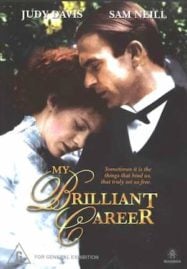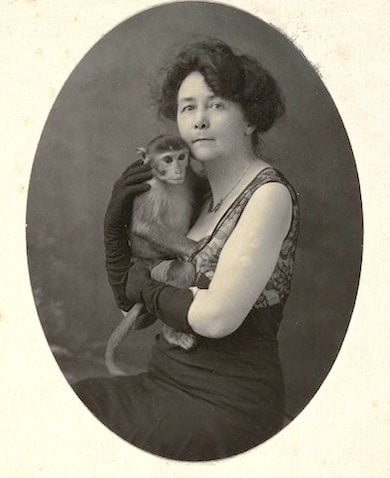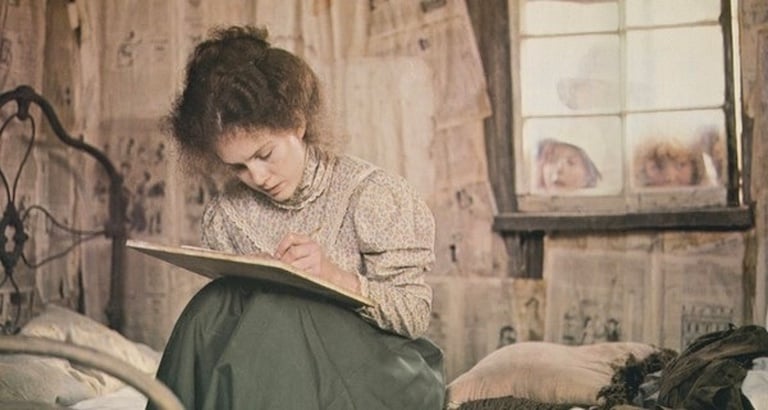My Brilliant Career (1979 film)
By Taylor Jasmine | On September 3, 2017 | Updated December 6, 2022 | Comments (0)

The 1979 movie My Brilliant Career was largely true to the novel of the same name by Australian author Miles Franklin (1897 – 1954) Her first book, it was published in 1901, when she was in her early twenties, though it was written while she was still in her teens.
The novel’s protagonist, Sybilla Melvyn, is a headstrong, creative young woman who fights convention, wishing to assert her independence and become a writer.
Starring Judy Davis and Sam Neill, and directed by Gillian Armstrong, the film enjoyed positive reviews and won a number of awards. Here is one such review that appeared after its American release.
. . . . . . . . . .
Miles Franklin, author of My Brilliant Career
. . . . . . . . . .
From the original review in the Chatham Press (NJ), July, 1980 by Miriam Congdon: My Brilliant Career is a beautifully crafted and poignant Australian film with deft touches of humor. The “career” in the title belongs to a high-spirited, independent girl of about sixteen. Sybilla longs to be a pianist, or an artist, or a writer — anything creative.
But she lives in the wrong place — a poor farm in the drought-stricken Australian outback — and most assuredly the wrong time — 1897, when you women were supposed to be subservient, demure, and most of all, married.
. . . . . . . . . .
. . . . . . . . . .
Sybilla’s parents, who can’t afford to keep her, send her to her grandmother’s: more money there, a richer life, opportunities, perhaps at marriage; most certainly there is more stultification, for Grandma and her neurasthenic younger daughter typify Victorian rectitude and prissiness.
There, Sybilla meets Harry Beecham, a marriageable and wealthy friend of the family, who, in the ways peculiar to men in those standoffish times, falls in love with her.
She’s torn between attraction to him and a fervent desired to be her own person, and that is one of the dominant themes of the movie. That point is most powerfully made when Sybilla is impressed into service as governess to her father’s creditors children.
. . . . . . . . . .
. . . . . . . . . .
My Brilliant Career is not at all heavy, though. Victorian manners and relations between the sexes are satirized with brilliant effect. The landscape photography is simply gorgeous, reminiscent in places of Days of Heaven, and elsewhere resembling French Impressionist paintings.
The very end of the film presents one of those beautiful surprises that leaves you crying with delight and empathy.
. . . . . . . . . .
My Brilliant Career (1901) by Miles Franklin
. . . . . . . . . .
More about My Brilliant Career (1979 film)
- My Brilliant Career: Rewatching Classic Australian Films
- Review in the New York Times
- Official trailer




Leave a Reply